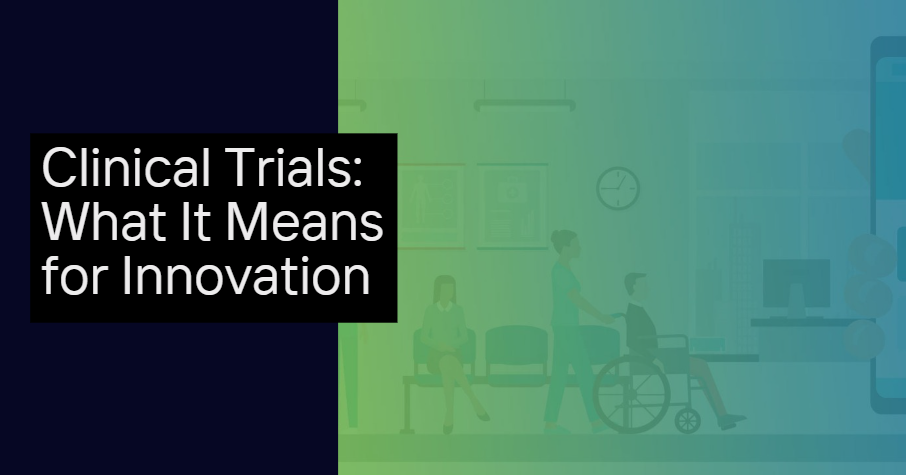Clinical trials have long been the engine of medical innovation — but they have also been notoriously slow, expensive, and exclusive. Now, decentralized clinical trials (DCTs) are emerging as a transformative solution, reshaping how research is conducted and who gets to participate.
Driven by technological advances and accelerated by the COVID-19 pandemic, DCTs are unlocking faster, more diverse, and patient-centric pathways to innovation.
The shift toward decentralization isn’t just a logistical improvement — it represents a fundamental reimagining of how new therapies reach the world.
What Are Decentralized Clinical Trials?
Decentralized clinical trials use remote technologies to conduct part or all of a study outside of traditional clinical sites. Instead of requiring participants to travel regularly to a hospital or research center, DCTs leverage tools like:
Telemedicine consultations
Mobile health apps
Remote monitoring devices (e.g., wearables)
Home health visits (nurses, lab technicians)
Direct-to-patient drug shipping
In a decentralized model, participants can complete surveys, track symptoms, monitor vital signs, and even undergo certain medical tests from the comfort of their homes.
While full decentralization isn’t always feasible, hybrid models — blending on-site and remote elements — are becoming increasingly common.
Why Decentralization Matters
The traditional clinical trial model has critical limitations:
Limited Diversity: Trials often overrepresent certain demographics (urban, white, affluent) and underrepresent minorities, rural populations, and older adults.
Geographic Barriers: Participants must live near research centers, excluding millions.
High Costs: Site management, staffing, and logistics inflate trial expenses.
Slow Recruitment and Retention: Trials can take years to enroll enough participants — and dropout rates are high.
DCTs address these challenges head-on:
Broader geographic reach
Greater participant diversity
Lower operational costs
Improved patient retention and satisfaction
By making participation easier, DCTs have the potential to accelerate discovery and bring new treatments to market faster.
Technologies Powering Decentralized Trials
The success of DCTs relies on a robust ecosystem of technologies, including:
eConsent Platforms: Digital informed consent processes streamline onboarding and increase transparency.
Remote Patient Monitoring (RPM): Wearables and at-home devices capture real-time physiological data.
Electronic Clinical Outcome Assessments (eCOA): Apps allow participants to self-report symptoms, quality of life, and side effects.
Telehealth Visits: Video consultations connect participants with study staff without requiring travel.
Blockchain: Emerging as a solution for securing and timestamping patient data across sites.
Cloud computing, artificial intelligence, and real-time analytics also play critical roles in data management and risk-based monitoring in decentralized environments.
Benefits for Stakeholders
For Patients
Convenience: Participate from home, reducing travel, time off work, and disruption to daily life.
Accessibility: Opportunities for rural, disabled, and underserved communities to engage in research.
Empowerment: Digital tools provide greater visibility into trial processes and personal health data.
For Sponsors and CROs
Faster Enrollment: Casting a wider net accelerates recruitment timelines.
Cost Savings: Reduced need for site overhead and travel reimbursements.
Real-World Data: Continuous monitoring offers richer insights into drug performance in everyday settings.
For Regulators
Patient Safety: Real-time monitoring and faster detection of adverse events.
Data Quality: Automated systems reduce human error and ensure standardized data capture.
Challenges and Considerations
Despite the many advantages, DCTs are not without challenges:
Data Privacy and Security: Managing sensitive health information across decentralized platforms requires rigorous cybersecurity.
Regulatory Variability: Different countries and regions have varying standards for DCTs, complicating global trials.
Technology Access: Not all participants have smartphones, reliable internet, or tech literacy.
Complex Protocols: Some trials still require in-person procedures like imaging or biopsies.
Investigator Engagement: Clinical investigators must adapt to new remote oversight models.
Overcoming these hurdles will be critical to ensuring that decentralized trials are both effective and equitable.
Impact on Innovation
By removing traditional barriers, decentralized clinical trials are accelerating the pace of medical innovation.
Key areas of impact include:
Rare Diseases: DCTs make it easier to enroll geographically dispersed patient populations.
Precision Medicine: Real-time data collection supports personalized approaches to treatment and monitoring.
Digital Therapeutics: Many digital health interventions can be evaluated through fully remote studies.
Vaccine Development: Rapid recruitment and monitoring can significantly speed up trials during public health emergencies.
Perhaps most importantly, DCTs support a patient-centered research model, where the needs and experiences of participants are prioritized — leading to more relevant, real-world insights that better inform future healthcare solutions.
Investment Trends in Decentralized Trials
The DCT market is booming. According to industry analysts:
The global decentralized clinical trials market is projected to reach over $15 billion by 2030.
Venture capital investment in DCT-enabling startups — from eConsent platforms to remote monitoring tech — is at record highs.
Pharmaceutical giants and CROs are expanding partnerships with tech companies to integrate DCT solutions into traditional pipelines.
Notable developments include:
Medable, Science 37, and THREAD raising major funding rounds to scale DCT technologies.
Major sponsors (Pfizer, J&J, Novartis) publicly committing to hybrid or fully decentralized trial strategies.
FDA and EMA issuing guidance encouraging the responsible adoption of decentralized elements in trial designs.
This momentum signals that decentralized trials are not just a pandemic-era solution but a permanent evolution of clinical research.
What’s Next?
The future of clinical trials will likely be hybrid by default, balancing remote convenience with strategic in-person touchpoints where necessary.
Key trends to watch:
AI-Driven Trial Design: Using predictive analytics to optimize protocols and recruitment strategies.
Greater Patient Involvement: Co-designing studies with patients to ensure relevance and accessibility.
Global Harmonization: Aligning regulatory frameworks to support cross-border decentralized trials.
Wearable Integration: Expanding the range of conditions that can be monitored remotely with medical-grade accuracy.
Ultimately, decentralized clinical trials will be a critical pillar in building a more inclusive, efficient, and innovative healthcare system.



